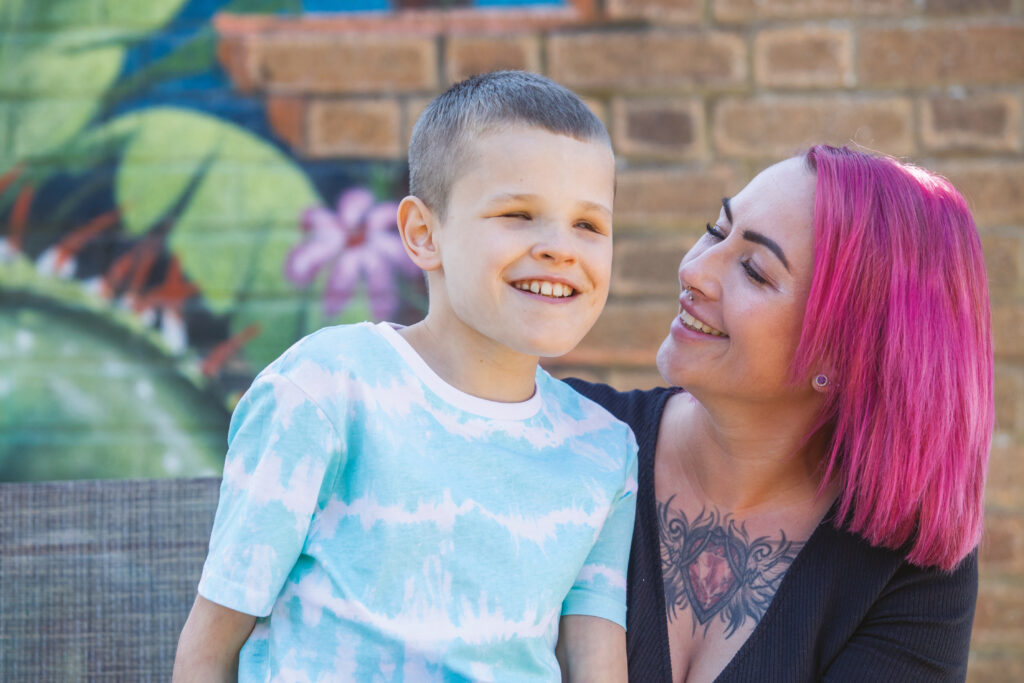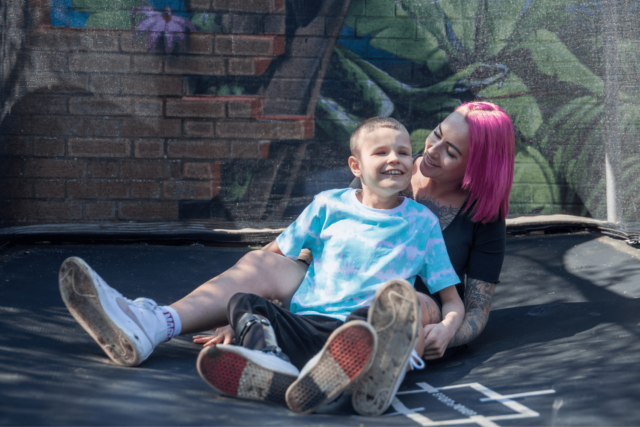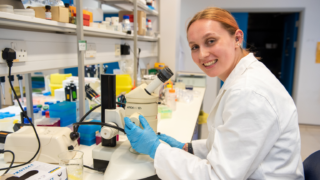
Cameron has Norrie Disease, a condition that means he was born blind. Now, at 10 years old, he’s almost lost his hearing, too. Fearing a life of silent darkness for her child, Carla shares their story – and what gives them hope.
“In 2012, my pregnancy with Cameron was healthy, and I was blissfully unaware of what lay ahead. I held my newborn baby in my arms, overwhelmed with love and joy. I’ll never forget the day the doctors gave us the diagnosis. Taking the stairs instead of the hospital lift, I called friends and family. That’s when it hit me. My beautiful boy, Cameron, has Norrie Disease. At that time I was devastated, but today I live in hope.
Our hope: gene therapy
“Progressive hearing loss with Norrie Disease usually starts in adolescence. Cameron was only three years old when I noticed he was becoming more frustrated and scared. We found out that he’d completely lost his hearing on his right-side. At five years old, his hearing on the left side also began to deteriorate.
I can’t imagine being blind and then losing another vital sense which connects me to the world. It’s heart-breaking to think he might be at risk of being completely deaf. Thankfully there is a ray of hope for my son, and other children with Norrie Disease too.
Professor Jane Sowden, at the UCL Great Ormond Street Hospital Institute of Child Health is investigating gene therapy that could slow down or even prevent progressive hearing loss in children with Norrie Disease – a project funded by RNID.

Donate to RNID
Keeping our connection
“Cameron is non-verbal, so he communicates using his own noises and sounds. You’d be amazed at how expressive he is! Through touch and sound he experiences the world he can’t see – it’s how he connects to me, his family, his friends, and the things he loves like music.
Sometimes I find it hard to think of the future but he keeps me going. No matter what he faces, he does it all with a smile on his face and has the courage to learn and explore the world in his own way, all at his own pace.
Thank you for reading our story today and, if you’ve ever supported RNID, for all your help on our journey so far. It has given me – and all those who love someone who is losing their hearing – hope for a brighter future. The fact is that RNID relies on voluntary donations to fund research into hearing loss. Can you give help fund more incredible projects like this, to give hope to families like mine?”

